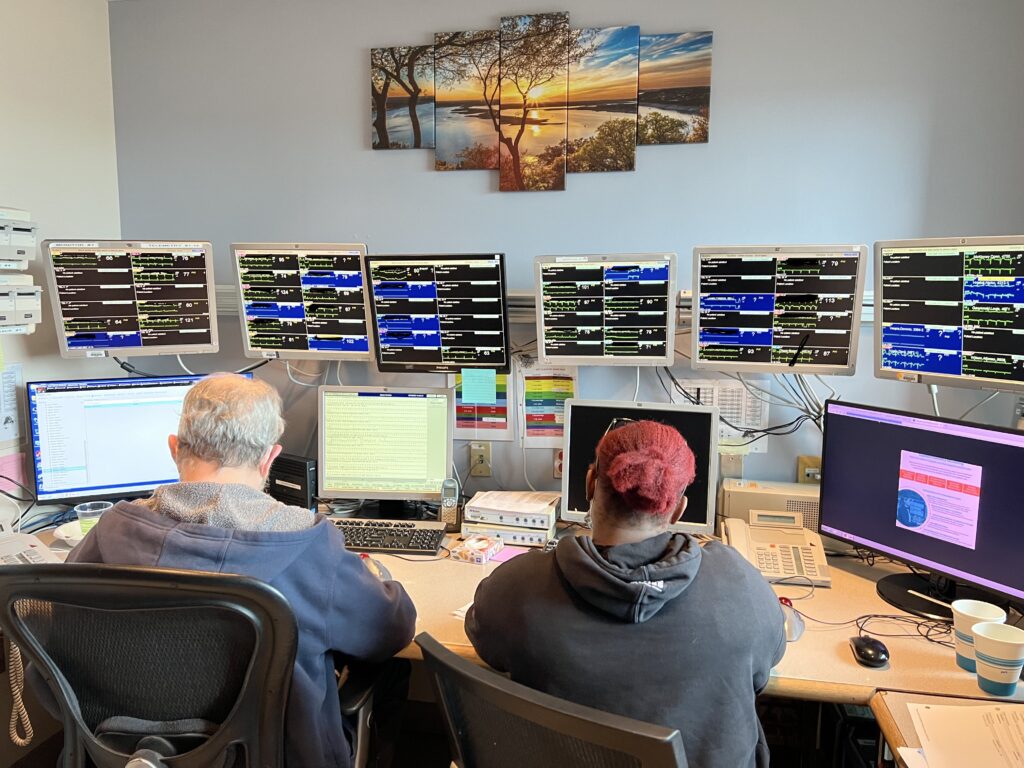(HACKENSACK, N.J.)—There are so many stories that occur in the hospital that nobody knows about. For example, a famous rapper can be your patient, or a tragic love story can occur all on the same day. Working in an actual hospital is just as dramatic as Grey’s Anatomy just without the incorrect medical terminology.
On the fourth floor of Hackensack University Medical Center (HUMC), any time of the night or day, a team of technicians are tracking the heart rhythms of a dozen or more patients using telemetry monitors. Patients with cardiac or other issues requiring monitoring are fitted with five electrodes on their chests. A team of telemetry technicians then interprets the electrical activity of a patient’s heart to detect arrhythmias, shortness of breath, sweating heavily, blood pressure anomalies, and chest pain.
Christie Lindor, a telemetry technician at HUMC, spoke to the Click recently to explain her job and what it was like to work through the peak of the coronavirus pandemic.
The Click: What made you want to work in the telemetry department?
Christie Lindor: I was always interested in working at telemetry because of the functions of the heart and as a hypochondriac person, who always thinks they are having a heart attack, lol, I felt like this was an excellent skill to learn.
The Click: When there is a code or code stroke on a floor, what does your department do?
In the hospital, if a patient is coding, then the patient is unresponsive, has no pulse, going into cardiac arrest, and needs immediate resuscitative efforts. If it is a code stroke, then the patient is showing stroke-like symptoms such as trouble walking, and difficulty speaking. When a patient’s heart is dropping, nurses call the Rapid Response Team nurses to examine what is going on. In my department, we ring a bell and it sounds like a big siren with red flashing lights indicating that someone is coding or a code stroke is happening. We then call security to make an announcement over the intercom to inform the Rapid Response Team to rush to the designated room.
The Click: What does “desatting” mean?
That is when the oxygen is dropping under what the doctor says the therapeutic levels are. Anything under 90 would be alarming because there is not enough oxygen flowing in the bloodstream. From low oxygen to the heart, following to the brain, the lungs are important for people to breathe with.
The Click: Tell me your favorite story about working at telemetry.
Well, I don’t have a favorite story working here, but I can tell you a romantic story that had the entire hospital in awe during the pandemic? There [was this] married couple … in their mid-80s, and they both caught COVID. They were in two separate rooms at the time, and they knew they weren’t going to make it out. They begged the supervisors and asked to speak to the directors of the hospital to move them into the same room because they wanted to be with each other for their last moments. Once they spoke to the directors they were moved to the same room at the end of the hallway. It was a big issue, at first, because there was only one COVID patient per room but the director made an exception. The husband died in the morning and then the wife died a few hours later and the entire hospital heard about it. It was considered a tragic love story during the pandemic because they fought to stay together and die together.
The Click: What is your outlook on life now since the pandemic is slowly coming to an end?
You always hear about outbreaks like the Ebola virus and the swine flu, but it never reaches such magnitude. We didn’t know how lucky we were then. A lot of us lost family and colleagues during this pandemic. Live life, and do things “with purpose” and not “on purpose.”[This gives] a new meaning to “life is short” because that couple had 60-plus years together— which probably felt like nothing in those last few moments. So I am learning to cherish life more because you never know when it is going to come to a tragic end.


